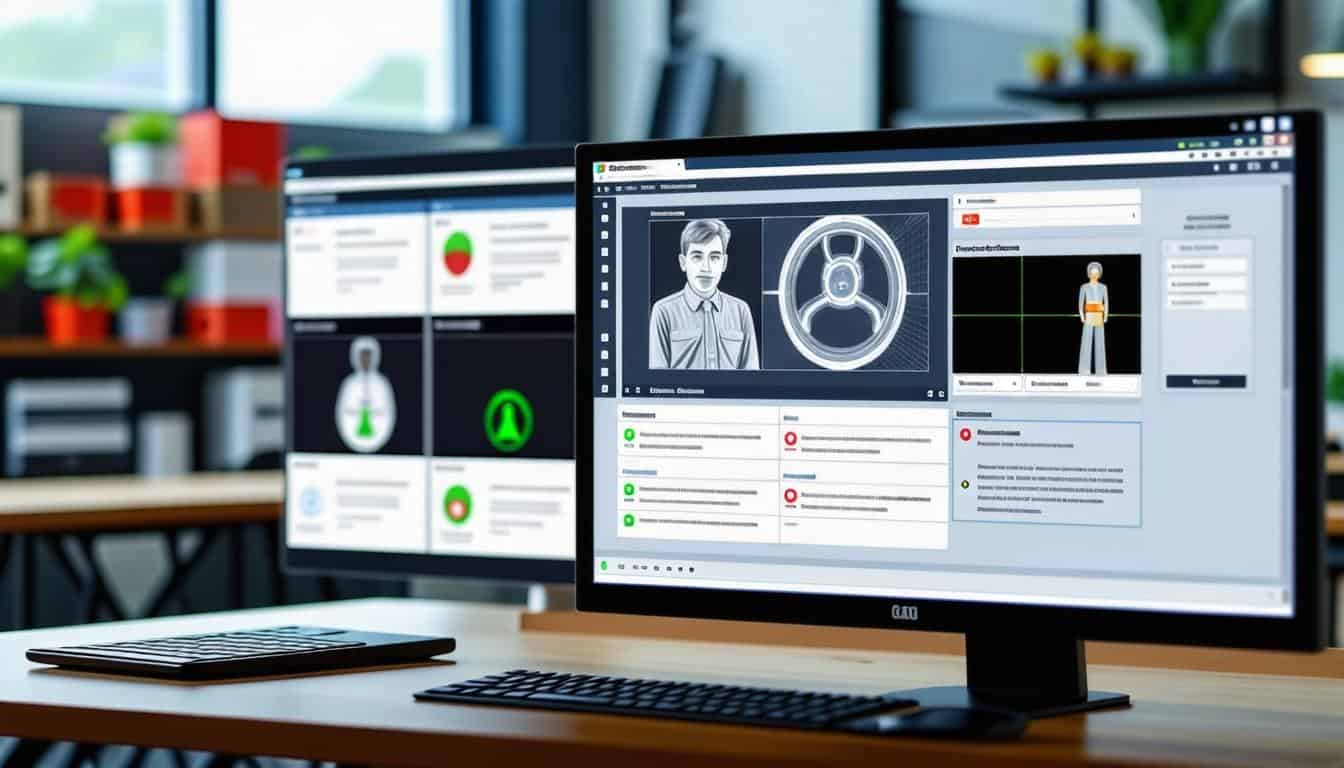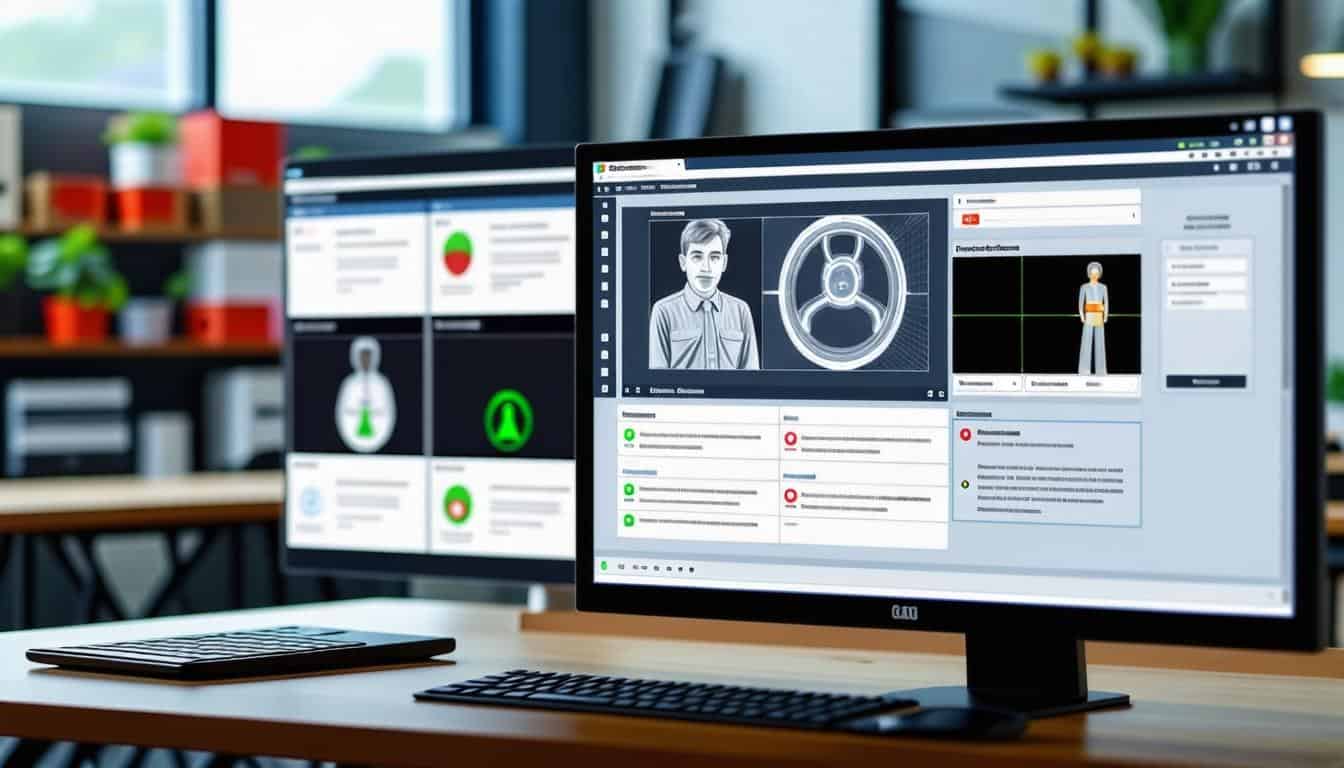Canvas is a widely used learning platform in schools, but many students question its ability to detect screenshots. So, can Canvas really see when you capture your screen?
Generally, the answer is no—Canvas does not track screenshots taken during regular browsing.
But, the scenario shifts during exams with proctoring software. In these instances, Canvas can monitor activities such as screenshots and screen sharing. Knowing how these tracking features work is critical for students aiming to uphold academic integrity while finding your way Canvas.
Key Takeaways
- Canvas can identify potential cheating through proctoring software, alerting instructors when screenshots are taken.
- Though Canvas doesn’t track screenshots directly, it logs user actions that may suggest suspicious behavior.
- Using split-screen during exams can trigger alerts in Canvas, as it actively monitors user activity.
- Most websites lack the capability to detect screenshots unless equipped with specialized monitoring tools.
Canvas Tracking Capabilities
Canvas is a strong learning management system that prompts necessary questions about its tracking capabilities. Can Canvas detect screenshots?
The answer is complex. In standard use, Canvas does not monitor your activities outside its platform. But, when paired with proctoring software like Proctorio, it can identify when a screenshot is taken, alerting instructors to potential cheating.
Imagine a security camera in a store: it captures everything happening inside but has no view of the outside world. Similarly, Canvas records specific actions, such as the time spent on quiz questions, but it doesn’t track your entire browsing history.
While Canvas may not detect screenshots in everyday scenarios, it actively monitors behavior during proctored exams to uphold academic integrity. So, when you’re taking a quiz, remember to stay vigilant! Integrity is necessary!
Proctoring Software and Screenshot Detection

When using proctoring software for online exams, the stakes are high. Can Canvas detect if you take a screenshot?
The answer is complex. In a typical scenario, Canvas can’t see beyond its own page. But, during proctored exams, it acts like a digital watchdog, monitoring actions such as screen sharing and screenshot attempts.
For example, if you’re using software like Proctorio, trying to capture your screen will trigger alarms. Canvas logs your activities, allowing instructors to review any suspicious behavior. It’s like playing a game of hide-and-seek, but the system is designed to make sure academic integrity. For more insights on quiz logs, visit quiz logs.
In the end, adhering to the rules is critical. Cheating may seem tempting, but the consequences far outweigh the risks!
User Activity Logging in Canvas
Canvas, a popular learning management system, tracks user activity, but can it catch you taking a screenshot?
In typical scenarios, Canvas doesn’t monitor screenshots or screen sharing. But, when paired with proctoring software, it can log specific actions, like when a student navigates away from a quiz screen. Imagine it as a security camera that activates only during a heist; it’s alert during tests but relaxed during regular browsing.
What does this mean for students?
If you’re using split screens during an exam, Canvas will track that activity. While it won’t know what’s happening on another tab, it will record your interactions with the Canvas interface. For deeper insights, feel free to contact Canvas Support for clarity.
While Canvas logs certain activities, it doesn’t track every action outside its platform. This makes it necessary for students to stay focused during assessments.
Split Screen Usage During Exams
When using split screen during exams, a pressing question emerges: can Canvas detect this?
Absolutely. If you click away from the Canvas quiz page, even for a next, the system records the time you left and returned. It’s akin to a teacher noticing when you glance away from your test paper.
In regular assignments, Canvas doesn’t track screenshots or screen sharing on standard browsers. Taking a screenshot is like passing a secret note in class—it’s only visible to you. But, in proctored settings, tools like Proctorio can trigger alerts if you try to cheat by switching tabs or capturing screenshots.
While Canvas has its limitations, it actively monitors your actions during exams. Staying focused isn’t just smart; it’s critical for upholding academic integrity.
Limitations of Canvas in Detecting Screenshots
The limitations of Canvas in detecting screenshots resemble a vigilant guardian who can only watch what’s directly in front of them. In a typical learning environment, Canvas cannot monitor actions outside its platform. If a student captures a screenshot using a standard browser, Canvas remains unaware. But, when proctoring software like Proctorio is utilized, the dynamics shift. It can alert instructors to suspicious activities, such as split-screen usage during an exam.
Consider these key points:
- Normal Use: Canvas cannot detect screenshots taken outside its interface.
- Proctored Exams: Proctoring tools can flag unusual behaviors, signaling instructors to potential cheating.
- Device Limitations: Canvas cannot track what students view on other devices or tabs.
While Canvas offers some tracking features, its limitations allow students to take screenshots undetected unless specific monitoring tools are in place. Isn’t it intriguing how technology can both empower and challenge academic integrity?
Privacy Concerns Regarding Screenshot Monitoring
Privacy concerns about screen capture monitoring are more pressing than ever in our digital world. Students often ask: Can Canvas detect screenshots? Usually, Canvas doesn’t track screenshots taken during regular use. Imagine a classroom where the teacher can see what’s happening in front of them, but not behind closed doors.
But, the game changes with proctoring software like Proctorio. This software acts as a watchful hall monitor, alerting instructors if students try to capture their screens during exams. It raises alarms, suggesting potential cheating. So, while Canvas itself doesn’t monitor screenshots, the tools used with it can dramatically shift the privacy place.
Grasping these privacy implications is critical for upholding academic integrity and fostering a fair learning environment.
Summing up
Canvas remains blind to screenshots captured during normal usage. Yet, when proctoring software is in play, it monitors specific actions, such as screen sharing. This surveillance can spark privacy concerns among students. Balancing academic integrity with the use of digital platforms like Canvas is critical. By grasping these functionalities, we can engage in online learning with responsibility and awareness.
Frequently Asked Questions
What kind of cheating can Canvas detect?
Canvas can detect behaviors like switching tabs, using split screens, and may flag suspicious activity during proctored exams.
Can Canvas track your screen activity?
Canvas doesn’t track screen activity directly, but proctoring software can monitor actions during exams. Stay aware!
Can Canvas detect duplicate screen?
No, Canvas can’t detect duplicate screens directly, but proctoring software may flag suspicious activity. Stay cautious!
Can Canvas detect if you copy and paste?
Canvas itself can’t directly detect copy and paste actions, but instructors can see your activity logs and patterns.

